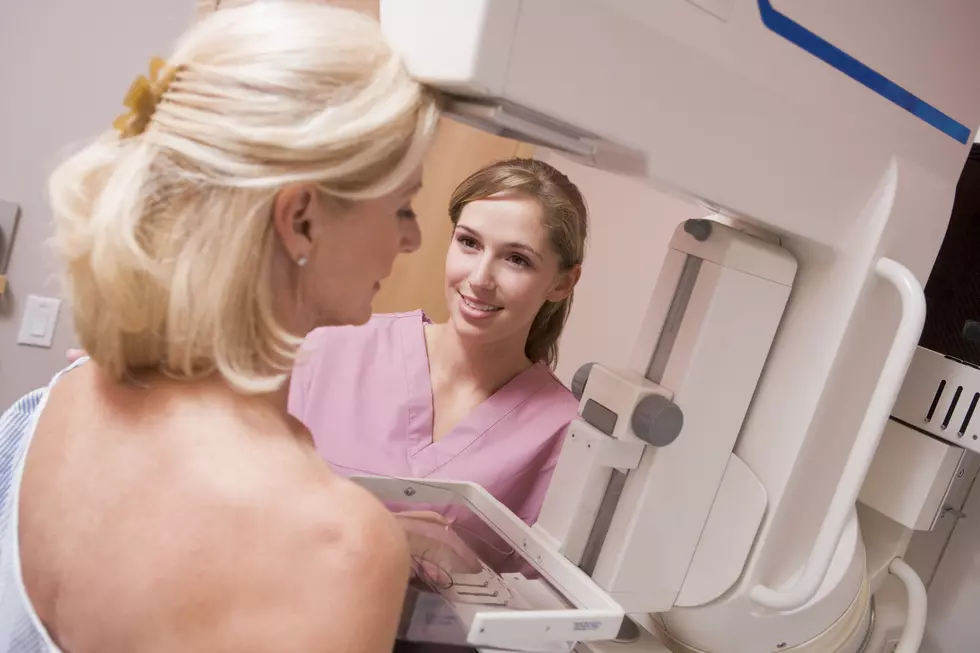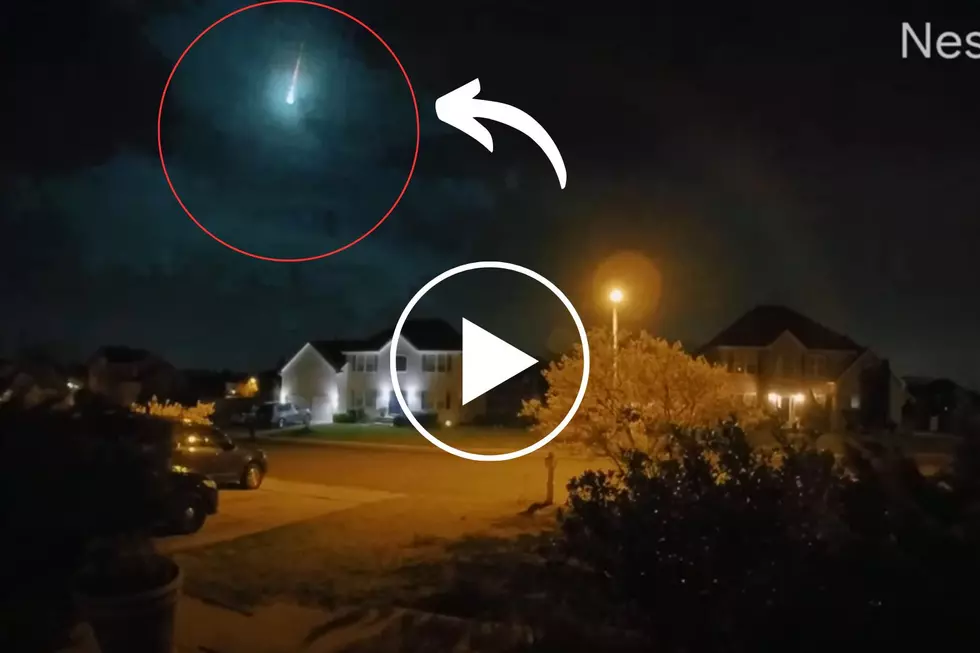
Roanne Silver Feels Positive and Whole After Breast Cancer Surgery
“When I tell this story, I feel like I’m talking about someone else,” said Roanne Silver. “It’s been two years since I was diagnosed with breast cancer, but the time has gone by in a blur.”
In fall 2017, Roanne’s radiologist saw something suspicious in her mammogram and referred her for a breast MRI with a biopsy. “When the radiologist told me ‘you have breast cancer,’ I was panicked,” Roanne said. “I NEVER expected to hear those words, and I immediately feared the worst.”
Roanne researched breast surgeons online, and that’s how she found Virtua breast surgeon James Crawford, MD. “I was so scared, but I immediately felt at ease with Dr. Crawford,” she recalled. Explaining a cancer diagnosis and treatment can be complex, but Roanne said she appreciated that Dr. Crawford spoke to her with warmth and compassion, without medical jargon.
He explained she had clinical stage-2a breast cancer, which meant it was growing, but contained in the breast and nearby lymph nodes. A lumpectomy—the surgical removal of the tumor and surrounding tissue—wasn’t an option for her because she had disease in multiple areas of her breast and the amount was too extensive for this approach. She needed a total mastectomy—surgery that removes the entire breast (tissue, ducts, lobules, fatty tissue and nipple).
They also discussed her breast reconstruction options. Roanne recalled, “Dr. Crawford said I could do nothing. I could have a saline or silicone implant. Or, I could choose a procedure where the breast is rebuilt using my own muscle and tissue.”
Roanne determined breast reconstruction using her own tissues was the ideal option: “I didn’t want anything foreign in my body,” she noted.
Oncology Nurse Navigation: A Caring Resource Starting at Diagnosis
With lots of appointments, tests, and surgery preparation in the weeks and months ahead, Roanne was introduced to Virtua oncology nurse navigator Randi Solden, RN, BS, OCN. “Randi was my go-to through my whole experience and my lifeline to my whole medical team,” Roanne acknowledged. “I felt like we were lifelong friends.”
Virtua’s oncology nurse navigators contact women within 48 hours after they receive a breast cancer diagnosis, aiming to provide support and education. Nurse navigators also streamline communication between women and their doctors, coordinate appointments and help women access any clinical and supportive care services they may need such as physical therapy, nutrition therapy, and help with hair loss, as well as emotional support for families.
Randi helped Roanne connect with Alexander Au, MD, a Penn Medicine | Virtua Cancer Program microvascular and plastic surgeon, who specializes in breast reconstruction.
Knowing she didn’t want breast reconstruction with an implant, he described every aspect of DIEP flap breast reconstruction, a procedure that uses skin, fat and blood vessels from the lower abdomen to rebuild the breast. She recalled, “There was no sugarcoating it—he told me I would have an end-to-end scar across my belly, but that I would wake up with a breast.”
With great humor in the face of cancer, Roanne remarks: “I was happy, at least, that I’d get a bit of a tummy tuck out of it, too.”
Roanne Prepared for Tough Days After Surgery, But Experienced Something Better
In the weeks before her surgery, Roanne met with her nurse navigator Randi to go over the details of her surgery. “Randi showed me the drains I would have after surgery, what to look for in them and how to empty them,” Roanne said. “She explained every detail of what would happen in the hospital, right down to when I would be transferred to the ICU after surgery.”
In addition, Dr. Au explained his procedure for managing pain after surgery—and it started before the surgery even began. Right before surgery, Roanne took prescribed doses of acetaminophen and received it again before she left the operating room. This procedure is intended to minimize the need for opioids to manage pain after surgery. And Roanne says it worked for her.
Moved to the intensive care unit to recover after surgery, Roanne says she anticipated a lot of pain and pulling—especially in her abdomen. Instead, she found herself walking nearly upright—much to the surprise of her physical therapist.
The best part?
“I thought breast cancer surgery would make me feel like half a woman. But, waking up with breasts—I never felt more whole,” she said.
After Surgery, Treatment Turned to Preventing Cancer from Returning
A few months after surgery, Roanne started the next steps in her treatment, which included chemotherapy, radiation therapy, and lymphedema therapy.
Roanne first had chemotherapy, which she said she had been dreading.
When Priya Gor, MD, MSCE, Penn Medicine | Virtua Cancer Program hematologist/oncologist, explained Roanne’s chemotherapy treatment options, there was confusion about when Roanne would start treatment. “Ten minutes after leaving the appointment, I got a call about scheduling an appointment to place the chemotherapy port in my body, and I panicked because my mind wasn’t ready for it yet.”
Roanne called Randi, who calmed her down and reminded her that the timing of her treatment was entirely up to her. “She said they would be ready when I was ready.”
That night, she got a call from Dr. Gor. “She was so kind, explaining that there was no pressure to start chemo right away,” says Roanne. “With Dr. Gor, I felt well-informed and well-cared for.”
Once ready, Roanne was scheduled for four rounds of chemotherapy for 1 ½ hours each session.
“I hyperventilated at the first session,” Roanne recalled. “But the nurses listened to my concerns—they really cared. At my following visits, they always knew me by name and recalled personal details that I had shared with them. That personal touch made the hours I spent there a little easier.”
With chemo comes hair loss, and Roanne’s wavy, mid-length red hair was part of her identity that she wasn’t ready to lose. After a dreadful wig consultation at a local salon, Roanne followed her friend’s advice and went to another salon. “They carefully listened and let me try wig after wig until I found one that complimented my small face,” she said.
When Roanne returned to her job at Weight Watchers a few weeks later, the members didn’t know she was undergoing chemotherapy treatment. “But,” Roanne shares, “they loved my sassy new hairstyle. When my own hair started growing back—salt and pepper-colored and curly—I finally stopped wearing the wig, and they loved it even more. Everyone wanted to know who did it!”
Targeted Radiation Therapy Aimed at Destroying a Possible Cancer Recurrence
During the mastectomy, Roanne’s surgeon removed 9 lymph nodes—8 of which tested positive for cancer. Therefore, radiation was used to minimize her risk of breast cancer recurrence.
At Roanne’s first appointment with Penn Medicine | Virtua Cancer Program radiation oncologist Catherine Kim, MD, she said Dr. Kim’s nurse greeted her warmly.
“She asked if she could give me a hug,” Roanne said. “With that, she shared that she was a breast cancer survivor as well, and welcomed me to the club.”
Dr. Kim helped Roanne understand the benefits of radiation, potential side effects, as well as her treatment schedule.
“Beyond the basics, Dr. Kim gave me advice on how to take care of my skin to prevent burns from the radiation,” Roanne said. “I followed her instructions precisely—using a special cream under my arms and on my chest and back—and I never had any burning. That extra bit of care helped me feel good during treatment.”
Lymphedema Therapy Helps Prevent Swelling After Lymph Node Removal
Roanne had some under-arm lymph nodes removed when she had the mastectomy. Lymph nodes are responsible for filtering and draining fluid from various parts of the body. When the lymph nodes are removed, it can cause a backup of lymph fluid, resulting in a condition known as lymphedema. After a mastectomy, this means excess fluid and swelling can occur in the arm on the side of the affected breast.
Not all women who undergo mastectomies develop lymphedema, but it’s more common in women who have a higher number of lymph nodes removed and have radiation therapy, like Roanne.
Roanne’s nurse navigator personally took her to her first evaluation with the Virtua Physical Therapy and Rehabilitation lymphedema therapy program. The certified lymphedema therapists use a well-studied and carefully monitored weight-training program to control or reduce the risk of arm swelling after mastectomy. In addition, they advise using specially fitted compression garments (when needed) and remind women not to have blood drawn or a blood pressure cuff applied to the affected arm, as it can lead to an increase in swelling.
“I had some swelling after surgery,” remembers Roanne. “But, after working with the lymphedema therapists, I got my full range of motion back, especially with small things like putting on a bra and pulling a shirt over my head.”
Yes, Roanne HAD Breast Cancer—And She Only Looks Back to Help Others
Roanne said she has spoken to many women who have been treated for breast cancer, and she knows and appreciates that her experience doesn’t exactly meet the norms.
“I expected to deal with pain after surgery, and had very little pain. I was scared, but every doctor and nurse I encountered listened to my concerns and called me back day or night to answer my questions. At every point during my treatment, I felt informed about my options and in control of my choices,” she said. “It was as pleasant as cancer treatment could be.”
Roanne said she learned from the experience, too.
“I know that bad things, like cancer, can happen to good people,” Roanne stated. “But, even when I felt scared or down, I never let it put me in a slump. Through those times, I learned that I was a lot stronger than I ever knew.”
Roanne received her breast cancer diagnosis two years ago and, today, she’s cancer free. Her life never stopped because she had cancer and she continues to share her story to help others, even though it still feels like she’s talking about someone else.
Penn Medicine and Virtua Health Deliver Unrivaled Cancer Care in South Jersey
The Penn Medicine | Virtua Cancer Program offers advanced treatments and personalized support for those with suspected or diagnosed breast cancer. From fellowship-trained breast surgeons to oncology nurse navigators, we guide you through every aspect of treatment—offering attentive care for your physical, psychosocial and emotional needs.
To consult with a breast surgeon, call 1-888-847-8823.
More From 94.5 PST




